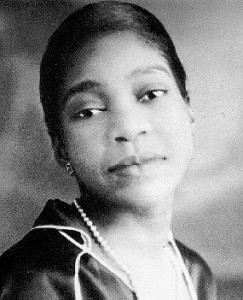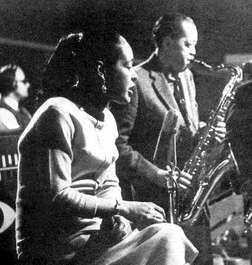In the early 1920s, while flappers danced the Charleston to wind-up Victrolas in middle-class family parlors, blues singers in feather boas and beaded dresses were the surprise hit of the new “race record” industry. Shouting and moaning, these ‘Black Pearls’ were first ladies of the blues.
The blues came out of the Deep South more than one hundred years ago, riding the rails and dirt roads of the Mississippi Delta, with country bluesmen like Robert Johnson and Leadbelly. They sang the blues they wrote or found along the way, and they accompanied themselves on guitar. They played in juke joints, or on street corners and railway platforms. You couldn’t really say they were in the entertainment business. They were folk singers as much as anything else.
But it was a different story with the black “blues queens” of the 1920s. They sang about the same ‘bad luck’ and ‘love-gone-wrong’ themes. With their bangles and satin capes, these women were more at home on the vaudeville stage than in the cotton fields. They had piano players or small jazz bands to back them up in their cabaret acts and tent shows.
The most important of these was Bessie Smith (1895-1937). From her early career as a chorus girl in vaudeville, Bessie made her recording debut in 1923 with “Gulf Coast Blues” and “Down Hearted Blues,” selling more than 750,000 copies that same year.
The greatest exponent of the second generation of female blues vocalists was Billie Holiday (1915-1959). Building on the work of her musical models Louis Armstrong and Bessie Smith, "Lady Day" created a widely influential singing style deeply rooted in the blues.
This week on Riverwalk Jazz singer Topsy Chapman joins The Jim Cullum Jazz Band at The Landing in a salute to Bessie Smith, the Empress of the Blues, in our program Bessie, Billie and the Blues.
Photo credit for home page teaser image: Bessie Smith from cover of Downhearted Blues, Original Recordings 1923-1924 CD by Naxo Jazz Legends
Text based on Riverwalk Jazz script by Margaret Moos Pick ©2006



